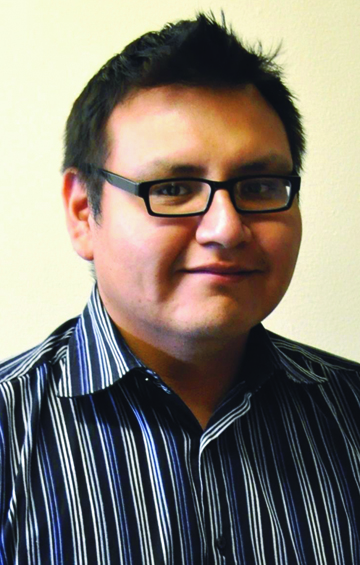 Whether by flood, fire or rapture,
Whether by flood, fire or rapture,
almost every culture has its own form of eschatology. There seems to
be no end in how people predict the end of the human race. The earth
will be consumed by fire, it will be re-appropriated by the waters or
the faithful of the world will be called upward toward heaven, body
and soul.
The focus is that there will be an end
to humanity as we know it and that there are very clear markers of
when, where and how.
The problem with eschatology is that
it is a human-centered system of belief that removes any kind of
responsibility when it comes to how we treat our environment, other
forms of life and each other. As a millennial Catholic Christian, my
generation’s religious education was not to focus on the Second
Coming as a means to judge others and use up what resources we could
in our lifetime; we were taught to respect the inherent dignity of
other people, in all forms of life and to be respectful of our
surroundings.
As a Lakota, educated in Wolakota –
our belief system – I was also told the stories of our people’s
creation and how we became the dominant species on this planet.
Lakota are not dominionists, nor are we salvationists; we believe in
merit. The story of how we came to be where we are is a story of
merit. We believe that we once lived as equals with our relatives in
the animal world but over time, the Pte Oyate (Buffalo Nation) began
to think they were superior to others because of their size and
strength. A great race was held on the outer rim of the He Sapa
(Black Hills) between the two-leggeds and the four-leggeds to decide
which group would have primacy over the others.
After a long and bloody race, during
which many were trampled to death, giving the foothills of the He
Sapa a reddish ting that remains there to this day, the two-leggeds
were victorious. This was not accomplished by human cunning or skill.
It was accomplished because our relatives in the Zintkala Oyate (Bird
Nation) sat on the backs of the buffalo and flew across the finish
line, giving two-leggeds the advantage.
As we emphasize in our belief system,
we are all related and dependent upon one another. Our relatives in
the bird nation were the first to teach us that by volunteering their
skill and strategy so that other we – human beings – could not
simply have dominion over others, but be a caretaker of our
environment and our relatives in the animals nations. This is a core
belief in Wolakota, that we are no greater nor lesser than any other
being in creation.
It is an ethos that guides how we see
ourselves in the greater order of things. We are caretakers, not
conquerors; we are entrusted with responsibilities, not victors
taking spoils of war; we live so that others may live, not living off
of others. We also do not believe in end times, it is antithetical to
our faith that we should abandon the care of future generations for
the promise of immediate self-serving satisfaction or salvation. We
are empowered to leave the world a better place than we found it.
With the news of the Keystone XL
pipeline’s tact go-ahead by the Obama administration in the Dakotas
and Nebraska, the PolyMet mines’ and Enbridge pipelines’ progress in
Minnesota, it can be daunting to be faced with such dominionists
making policy that affect our tribal communities and our cultural
legacies. It is frustrating to see the shortsightedness of job
creation and corporate profit being placed before live-giving water
and the health of future generations.
But we continue in the conviction that
even when all power tells us we are wrong, inconvenient or
irrelevant, we continue to fight for what’s right. Among the Lakota,
our Oglala cousins are seen as the vanguard of all opposition toward
those that threaten our traditional ways of life. Now, with the all
the historic bands of the Oceti Sakowin (Seven Council Fires)
stepping up and the continued resistance from our Anishinaabe
relatives, it’s encouraging to see that our values are not lost, at
least not for this generation.
And while our cultures will always
change and grow with the times and reflect shifts in priorities, what
remains at our center will never be changed: that we depend on one
another for protection and that we give each other strength to endure
the challenges ahead. We will always continue to fight for our
culture and legacy, because the alternative is irresponsible to those
who are counting on us in the generations to come.





